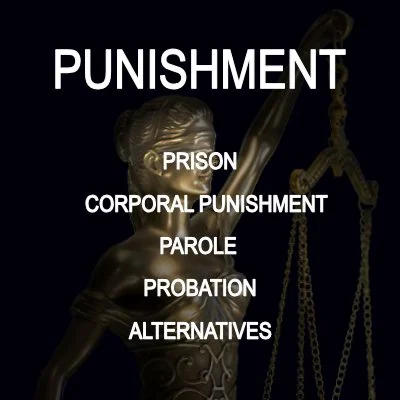An Unfulfilled Promise: Assessing the Efficacy of Article 11.073 A CRITICAL EXAMINATION OF TEXAS’S “JUNK SCIENCE” LAW
By Texas Defender Service
No one should be forced to serve a prison sentence—or face the death penalty and be executed—because they were convicted based on unreliable forensic evidence. But the reality is that scores of innocent people are serving prison terms, or even facing execution, simply because their juries trusted forensic evidence—from DNA to fingerprints to ballistics—that was later found to be untrustworthy. Yet for years, in both Texas and across the country, people who were convicted based on flawed forensic evidence had no legal recourse in the courts to be relieved of their convictions. Then, just over a decade ago, the Texas Legislature took a revolutionary step forward for people who were wrongfully convicted based on flawed forensics: it passed Texas Code of Criminal Procedure Article 11.073 (hereinafter 11.073). The first statute of its kind in the United States, 11.073 created a pathway for people whose convictions were based on false forensic evidence to show those faults and ultimately secure their freedom. Is Article 11.073 fulfilling its powerful initial vision: to grant relief to innocent people who are incarcerated on the basis of flawed scientific evidence? The answer is no. Texas Defender Service systematically examined the more than 70 cases raised under 11.073 between September 2013 and December 2023. We found that 11.073 is not working to provide relief to innocent people convicted based on false or unreliable forensic evidence. Due both to the Texas Court of Criminal Appeals’s (CCA) interpretation of the statute and lack of guidance in the statute itself, 11.073 is not operating as the Texas Legislature intended: #1—The Statute Does Not Go Far Enough to Protect Innocent People Who Were Convicted Based on Junk Science: At the heart of 11.073 is the Texas Legislature’s recognition that an innocent person convicted based on flawed forensic evidence should be able to overturn their conviction if they can show (1) that the evidence was flawed and (2) that without this flawed evidence, the jury would have found them “not guilty.” This is the standard written in the statute itself, and it is designed to provide a pathway for innocent people who are serving sentences based on unreliable forensic evidence. However, in practice, the CCA does not apply this standard. Instead, it usually only grants relief if a person can show evidence strong enough to eliminate any rational basis for their conviction, such as exonerating DNA evidence or an alternate perpetrator. This is the legal “actual innocence” standard, and it is higher than the standard written in the 11.073 statute. The legal “actual innocence” standard also places an impossibly high burden on innocent people convicted based on flawed forensic evidence. For the vast majority of people who are actually innocent, meeting the high evidentiary burden of the legal “actual innocence” standard years—or decades—after their conviction is out of the question. 1 Innocent incarcerated people are al almost never in a position to do the intensive police work required to reconstruct a crime scene, uncover previously unknown eyewitnesses, or track down an alternate perpetrator. Moreover, original evidence may have gone stale, and eyewitnesses can be missing, deceased, or are no longer able to recall specific details. #2—The CCA Largely Restricts Relief to Cases Involving New DNA Evidence, Even Though Most Wrongful Convictions Are Based on Other Types of Flawed Forensic Evidence: The CCA primarily grants relief in cases involving DNA evidence, ignoring many other cases involving false forensic evidence. This is concerning because nationwide data shows that false DNA evidence is only involved in a relatively small number of wrongful convictions. #3—The CCA is Not Granting Relief to Death-Sentenced People Under 11.073: The CCA has never granted 11.073 relief to a person sentenced to death, as compared to granting relief to 31% of people who seek relief and are serving non-death sentences. Given the historically high rates of exonerations in capital cases, the total failure of the CCA to grant 11.073 claims for death-sentenced people—compared to nearly a third of all other people—is especially concerning. #4—People Without Counsel are Functionally Barred from Meaningfully Seeking Relief Under 11.073: People who represent themselves in their 11.073 applications are effectively denied access to relief under 11.073 due to their lack of legal counsel. Of the 74 applications filed and adjudicated between September 2013 and December 2023, 19 were filed by people without lawyers. Of those 19 people without lawyers, only one has ever been granted relief, a stark drop-off from the 25% of people with counsel who receive relief. #5—Procedural Bars Prevent Large Numbers of 11.073 Applications from Being Considered on the Merits: Despite having valid claims, many people who seek relief under 11.073 never receive consideration of their claims on the merits because of procedural issues. These barriers especially impact people sentenced to death and people without lawyers. Texas took an extraordinary step in enacting 11.073, but more must be done to ensure that the statute operates as the Texas Legislature intended. In this report, we recommend steps the Texas Legislature can take to ensure that 11.073 serves its intended function: creating a pathway to relief for innocent people who were convicted on the basis of false or unreliable forensic evidence.
Austin: Texas Defender Service, 2024. 36p.


